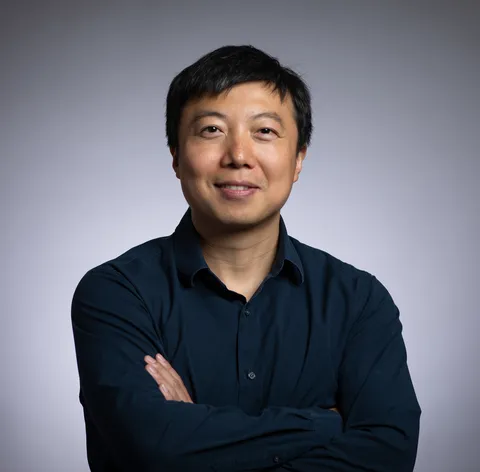
Xaira Therapeutics Appoints Bo Wang as SVP and Head of Biomedical AI
In a strategic move that underscores its deepening commitment to revolutionizing drug discovery through artificial intelligence, Xaira Therapeutics has announced the appointment of Dr. Bo Wang as Senior Vice President (SVP) and Head of Biomedical AI. This pivotal appointment marks a significant step in the company’s ongoing mission to integrate advanced machine learning technologies into biomedical research and therapeutic development. Dr. Wang will be instrumental in spearheading Xaira’s efforts to harness the power of AI in addressing two of the most persistent challenges in modern drug discovery: uncovering the molecular underpinnings of diseases that remain inadequately treated and identifying the patients most likely to benefit from emerging therapies.
“Throughout his career, Dr. Wang has been at the forefront of the application of AI to biology and medicine,” said Marc Tessier-Lavigne, Chief Executive Officer of Xaira Therapeutics and a prominent neuroscientist himself. “His deep expertise and experience will be instrumental as we expand Xaira’s AI capabilities to accelerate drug discovery and develop novel therapeutics for patients in need.”
Dr. Wang brings to Xaira a wealth of interdisciplinary expertise that blends computer science, medicine, genomics, and biomedical data science. He currently serves as a tenure-track assistant professor at the University of Toronto, where he holds dual appointments in the Departments of Computer Science and Laboratory Medicine & Pathobiology. His academic distinction is further underscored by his title as the inaugural Temerty Professor in AI Research and Education in Medicine—a prestigious role reflecting his leadership in shaping the future of medical artificial intelligence in Canada.
In addition to his university positions, Dr. Wang is the Chief AI Scientist at the University Health Network (UHN), Canada’s largest research hospital system. UHN is internationally recognized for its contributions to medical innovation and translational research. Dr. Wang also serves as a Canadian Institute for Advanced Research (CIFAR) AI Chair at the Vector Institute, a globally renowned center for artificial intelligence research. These roles collectively highlight his leadership at the intersection of academia, clinical practice, and AI-driven innovation.
Dr. Wang received his PhD in Computer Science from Stanford University, a leading hub for AI and biomedical research. During his doctoral studies and in his academic career since, he has established himself as a trailblazer in developing novel machine learning models tailored for complex biological and clinical applications. His research has focused on creating foundation models for healthcare and biology, encompassing diverse areas such as genomics, biomolecular modeling, precision medicine, and digital pathology.
One of Dr. Wang’s most significant contributions to the field has been his work on multimodal AI systems—AI frameworks capable of processing and integrating diverse data types, such as genomic sequences, electronic health records, imaging data, and molecular structures. These models are essential for capturing the complexity of human biology and disease, offering more accurate predictions about disease progression and treatment response. By building interpretable, scalable, and high-performance AI systems, Dr. Wang has laid the foundation for AI-driven breakthroughs in biomarker discovery, personalized therapy selection, and next-generation diagnostics.
“Artificial intelligence has unlocked unprecedented insights into biology, but our true challenge is turning these discoveries into real-world treatments,” said Dr. Wang. “I’m excited to join Xaira to bridge cutting-edge machine learning with therapeutic innovation—transforming AI’s promise into life-changing medicines.”
Xaira Therapeutics is one of the rising biotech companies aiming to harness the synergy between biology and computation. The company’s approach is rooted in building AI-native drug discovery platforms, which means that machine learning is not an afterthought or an auxiliary tool, but rather a central engine driving all stages of therapeutic development—from target discovery and validation, to drug design, and ultimately to clinical deployment.

The appointment of Dr. Wang comes at a time of heightened visibility and momentum for the company. In October 2024, Dr. David Baker, Xaira’s co-founder and a globally recognized pioneer in protein engineering, received the Nobel Prize in Chemistry. Dr. Baker shared the honor with Dr. Demis Hassabis and Dr. John Jumper of Google DeepMind for their groundbreaking work in AI-based protein structure prediction and de novo protein design. Their contributions, particularly through platforms like AlphaFold, have dramatically accelerated the pace at which scientists can model the 3D structures of proteins—a critical component in rational drug design.
The work of Dr. Baker and his colleagues has helped pave the way for companies like Xaira to push the envelope further—going beyond protein folding to understand how designed molecules interact with complex biological networks and how these interactions translate into therapeutic outcomes in patients. At Xaira, the team is focused not just on advancing existing models, but also on building entirely new computational paradigms that integrate insights across the molecular, cellular, and organismal levels.
With Dr. Wang now leading the biomedical AI division, Xaira is poised to integrate next-generation AI tools with real-world clinical data to develop a more nuanced and predictive understanding of disease mechanisms. This capability is vital for tackling diseases with heterogeneous presentations and responses, such as cancer, neurodegenerative disorders, and rare genetic conditions. Dr. Wang’s leadership is expected to play a crucial role in creating AI systems that can power adaptive clinical trial design, patient stratification, and therapeutic matching, thereby improving the likelihood of clinical success and accelerating the timeline from discovery to treatment.
Moreover, the synergy between Dr. Wang’s academic research and Xaira’s translational objectives represents a broader trend in the life sciences sector: the fusion of AI and biology as a unified discipline. As pharmaceutical R&D becomes increasingly data-driven, companies are recognizing the need for leaders who can navigate both domains with fluency. Dr. Wang embodies this convergence, having published extensively in top journals across computer science, biology, and medicine.
As part of his new role, Dr. Wang is expected to expand Xaira’s partnerships with academic institutions, hospitals, and technology providers to strengthen the company’s data and computational infrastructure. These collaborations will be key to training robust AI models, validating their performance in diverse settings, and ensuring that Xaira’s therapeutics are developed with the highest standards of scientific rigor and patient relevance.
In summary, the addition of Dr. Bo Wang to Xaira Therapeutics represents a landmark moment for the company. With his appointment, Xaira signals its intent to lead the next wave of AI-powered biomedical innovation. As the pharmaceutical industry continues to undergo a digital transformation, Xaira’s investment in top-tier AI leadership is expected to pay dividends in the form of more targeted, efficient, and successful therapeutic development.
With a Nobel Prize-winning scientific foundation, a leadership team steeped in both biology and technology, and a newly appointed Head of Biomedical AI with an outstanding track record, Xaira Therapeutics is well-positioned to redefine what’s possible in drug discovery—and bring hope to patients with diseases that current medicine has yet to adequately address.





